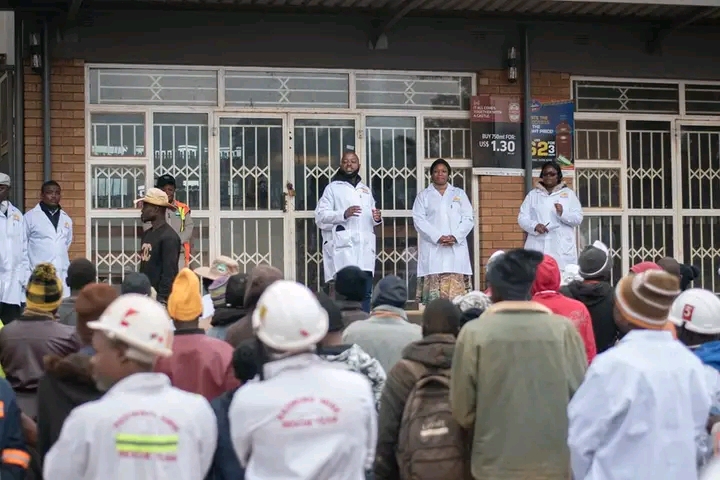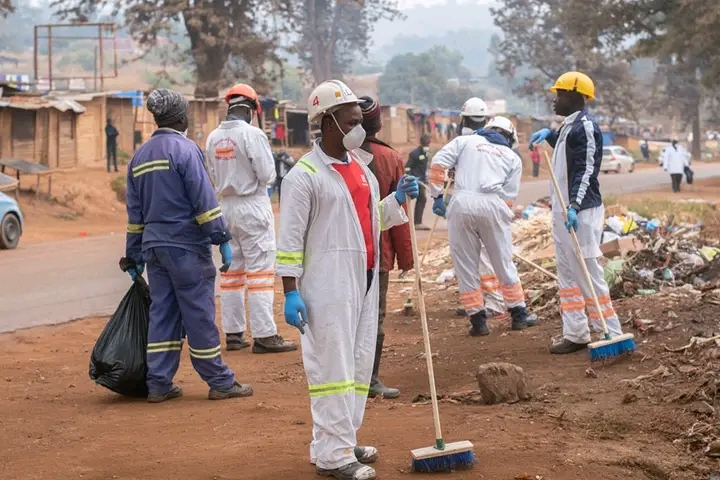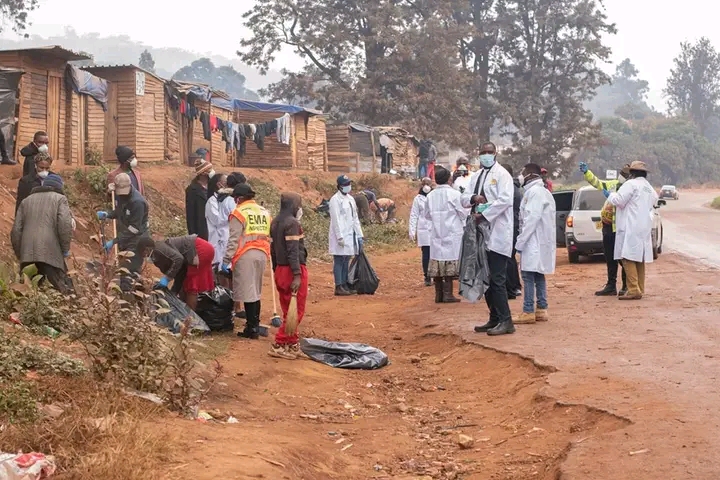By Fanuel Chinowaita

PENHALONGA, MUTASA – June 8, 2025 – The national clean-up campaign held Friday at Penhalonga Service Centre brought together key stakeholders in a spirited fight against plastic pollution, in alignment with Zimbabwe’s environmental commitments and preparations for hosting COP15 next year.
The event, held under the theme “Uniting Against Plastic Pollution: Protecting Wetlands for Future Generations,” coincided with World Environment Day commemorations and saw participation from the Environmental Management Agency (EMA), the Manicaland Provincial leadership, mining companies, youth groups, people with disabilities, and local residents.
Addressing the gathering, Rosina Mugadza, EMA Matron for Manicaland Province and wife to Manicaland State Minister Misheck Mugadza emphasized the urgency of combating plastic waste, which she described as “a growing threat to wetlands, biodiversity, and public health.”
“Plastic pollution threatens human health, aquatic species, tourism and contributes to climate change,” she said. “Zimbabwe’s wetlands are vital to water security, agriculture and biodiversity and they are under threat.”
She called for strengthened local authority systems and infrastructure to manage plastic waste and urged communities to adopt environmentally friendly alternatives such as baskets and eco-bags.
Mugadza also highlighted Zimbabwe’s hosting of the 15th Conference of the Parties (COP15) to the Ramsar Convention in July 2025, saying it was a critical moment to showcase the nation’s commitment to sustainable environmental management.
The event was part of the ongoing First Friday of the Month National Clean-Up Campaign, launched by President Emmerson Mnangagwa in 2018. EMA officials present reiterated the importance of observing the presidential directive and fostering environmental stewardship at grassroots level.
Speaking during the campaign, Clinton T. Masanga, Director of the Penhalonga Youth Development Trust, urged stronger community-mining partnerships for environmental sustainability.
“Penhalonga has been devastated by illegal mining,” said Masanga. “Today’s clean-up shows that collaboration between youth, mining companies, and the local authority can pave the way for accountability and lasting change.”
Mining company Better Brands, one of the main stakeholders in the campaign, also expressed its commitment to environmental health. Company Finance Manager Tinotenda Tonderai said community participation in clean-up efforts is critical to preventing the spread of disease.
“Cleanliness helps avoid diseases like cholera, malaria and typhoid,” said Tonderai. “We urge all residents to stop littering and play an active role in protecting our environment.”
In a notable demonstration of inclusivity, persons with disabilities actively participated in the clean-up exercise, with one volunteer saying their involvement showed that “disability is not inability.” Organizers praised the effort as a reflection of community unity and inclusive development in line with the National Development Strategy 1 (NDS1) and Vision 2030.
The Mutasa Rural District Council, Better Brands Mining Company, and local residents all pledged continued support to environmental initiatives aimed at transforming Penhalonga into a cleaner and more sustainable community.
The message from all speakers was clear: Zimbabwe must stand united in protecting its environment for present and future generations.


